Things were different for me back in 2014. I was still a college student, eagerly consuming any manga or anime that had canon pedigree. Read all of the classics that I could find. I searched through countless forums and online anime clubs, engaging with the varied discourse available. I felt fresh and green, completely new to the media. Yet, I acted like I knew so much about it. I felt like I had read so many of the great manga that I was an expert. I had read Akira, I had read Touch, I had read Buddha, I had read 20th Century Boys, and I was in the process of reading Ashita no Joe. I felt like I knew enough about manga to eloquently express myself. Then I read Natsume Ono’s not simple.
Truthfully, I don’t recall how I found this manga. Maybe it happened because of a Skype conversation back then. Maybe I saw it on a forum on MyAnimeList. Regardless, I found it and I was hellbent to read it. I remember making such a big deal about it, because I would be one of the first in my friend group to have read it. Then I did. Then I fell in love with it. But I couldn’t explain why.
All I have to document how I felt back then is a short paragraph—less than 130 words—dating to August 2015. I called it incredibly bleak. I thought the manga was just an exploration on how far a person can be dragged through sorrow and misery. Despite that, I said it wasn’t manipulative. Although, I couldn’t elaborate. I didn’t feel like Natsume Ono was tormenting me for the heck of it nor did I think that she leveraged sadness to make up for a lack of substance. The manga was amazing; I just didn’t understand why.
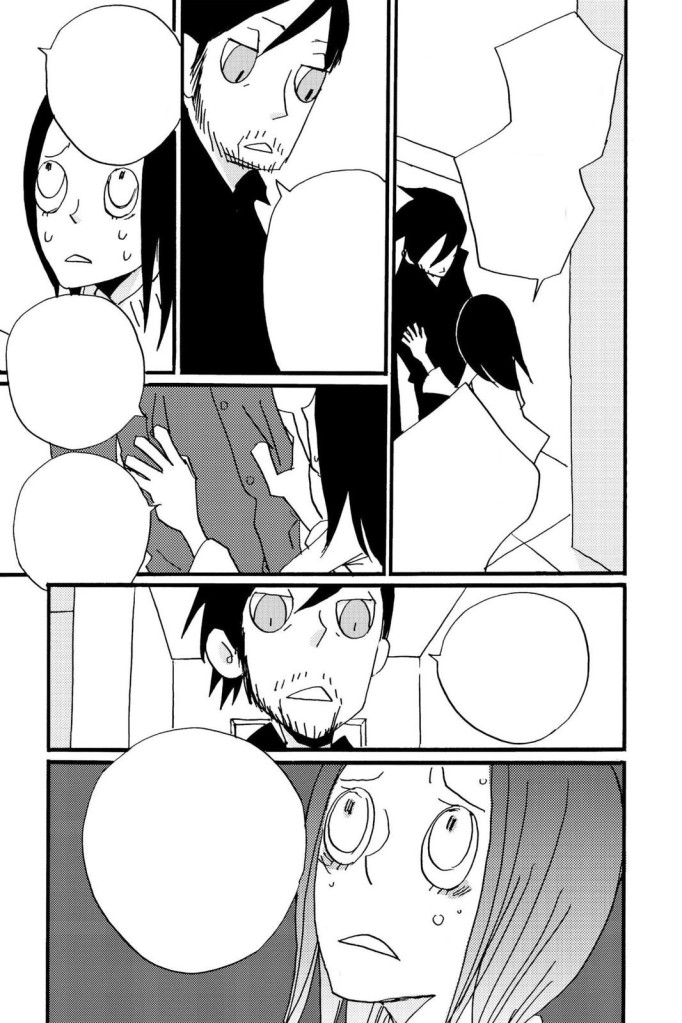
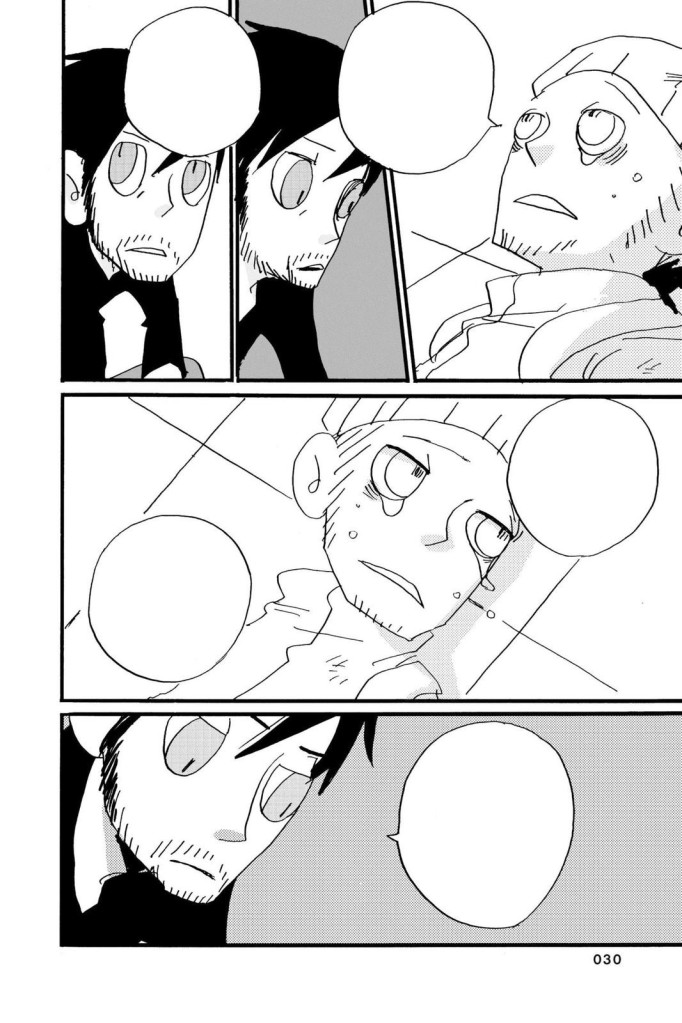
To my old-self’s credit, some of that is correct. The manga is one of the most soul-crushing works in the medium, without having to be overtly explicit or violent. Ian’s life starts twisted and ends in pitiful melodrama. I do not blame my old-self for focusing on that aspect of the story, nor would I fault anyone who comes out of reading this fixated on those pained moments.
The manga chronicles Ian’s unfortunate circumstances, from his absent and abusive “parents”, to the search for his sister and his death. When viewed chronically, the story is irredeemably miserable and cruel, but that isn’t how it’s told. The thing I missed during my first read was really thinking about the narrative’s framing. It starts with Ian’s death, making his end point and depression a forgone conclusion. Readers experience the story knowing that will happen.
The magic is in everything else. Ian’s personality is bright in a mundane but extraordinary sense. He grows up in an awful home with no one else to rely on but his sister, yet his love for his sister is so sincere and radiant that it carries him through life. His positivity impacts the people around him, especially Jim. He functions as a secondary lens. The outside perspective to Ian’s life, sympathetic and interested, much like the reader. Ian is emotionally invested, probably stemming from his position as a novelist and a gay man. He isn’t attracted to Ian, but he understands what it is like to have a strained familial relationship. There is a kinship between them that is powerful and emotive.
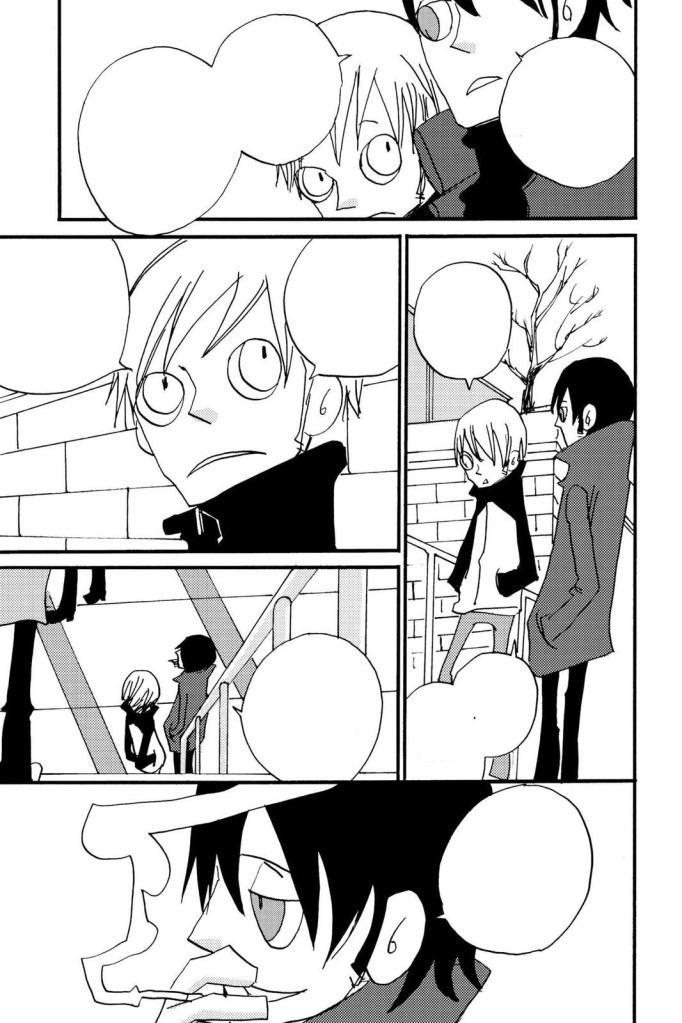
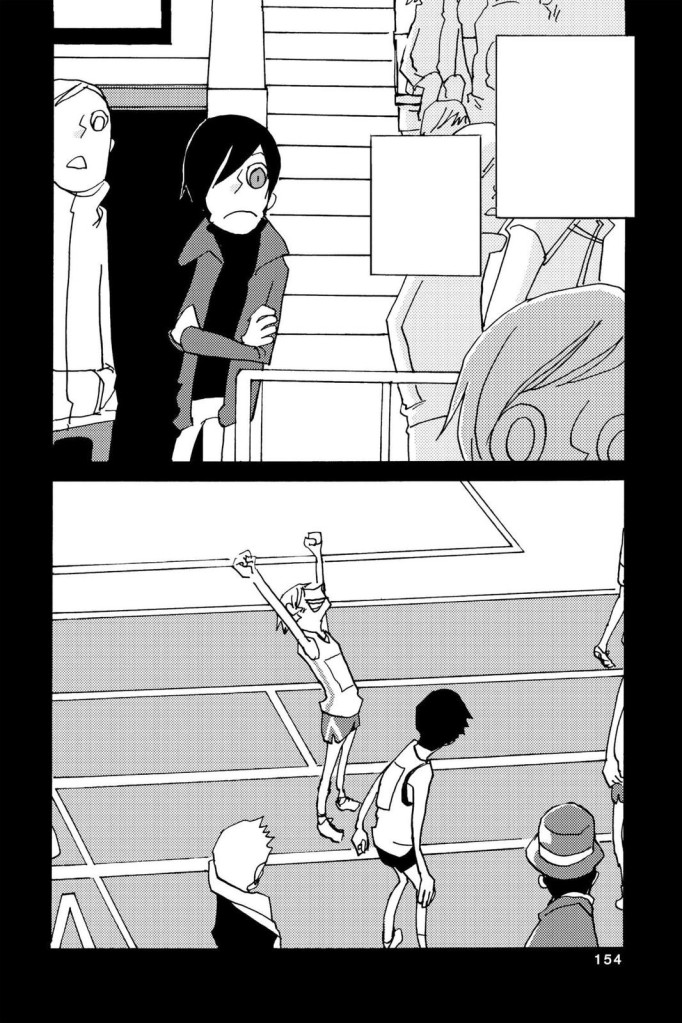
The dual perspectives of the manga showcase Ian, not as an inherently miserable person, but a child full of light and love. This is emphasized by the final chapter where Ian meets an older woman during his journey to find his sister. She was depressed and ready to abandon her family, but Ian’s presence convinced her to stay. His honest disposition and love for his sister convince her to stay with her family. This is how the manga ends.
By starting the manga with Ian’s despair and death and ending it with his positivity, the manga proves that it isn’t about presenting the fall of a boy’s spirit, but showing that there was something about that life worth living. Even though Ian’s life is messed up and depressing, he was a loving and cheerful kid who positively impacted the people around him. It is a testament to the beauty of a human soul. Even the saddest of lives had something to admire and cherish.
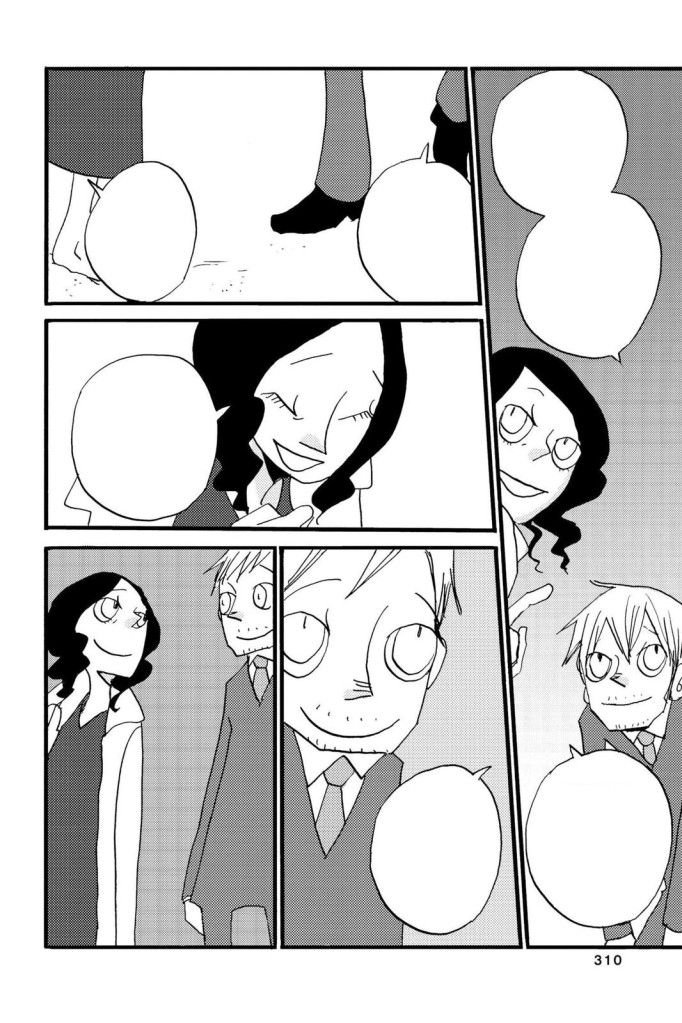
This reread did not change how I felt about not simple. It is still one of my top ten favorite manga of all time. It hasn’t climbed up in ratings, but it also didn’t go down. What changed was having the clarity to understand what I felt. I couldn’t express what I felt before. Perhaps I lacked the emotional maturity. Maybe I didn’t think about it critically enough. It doesn’t really matter. Now, I’m just happy that I can explain why this short work is one of my all-time favorites. Now, I can appreciate Ian the same way Jim does.